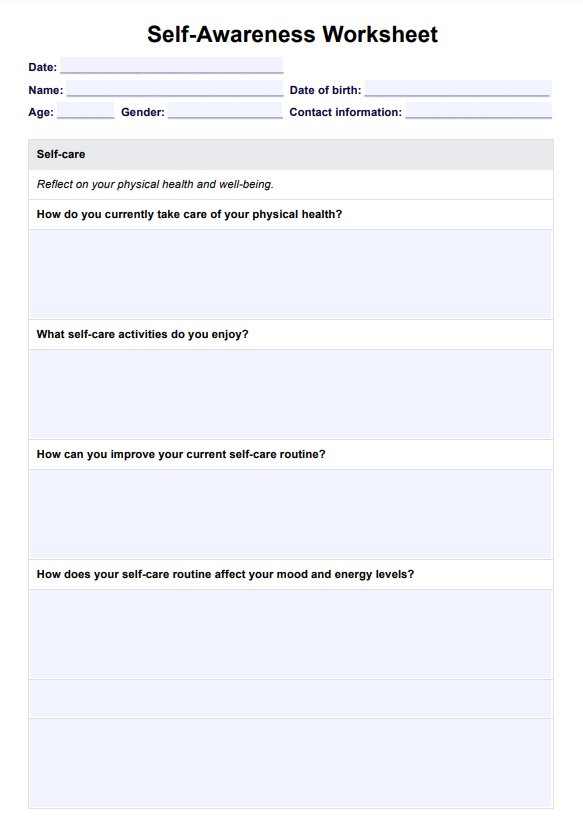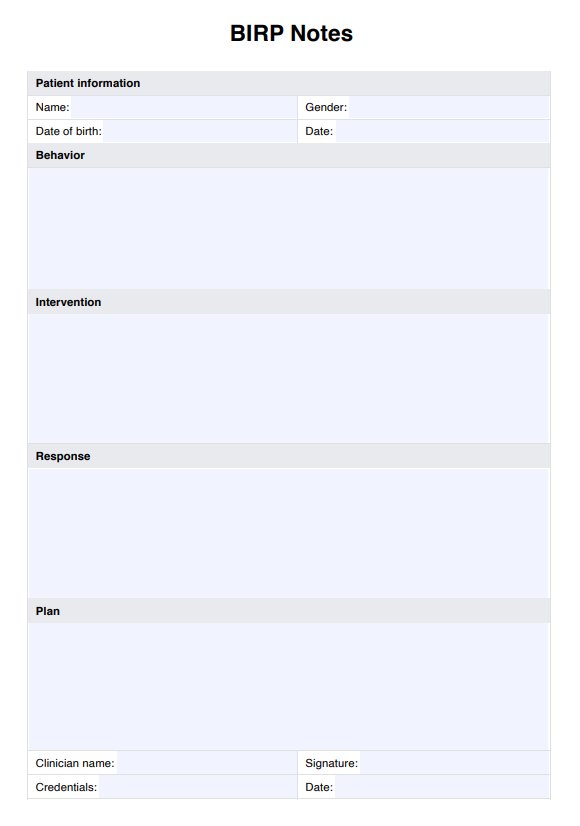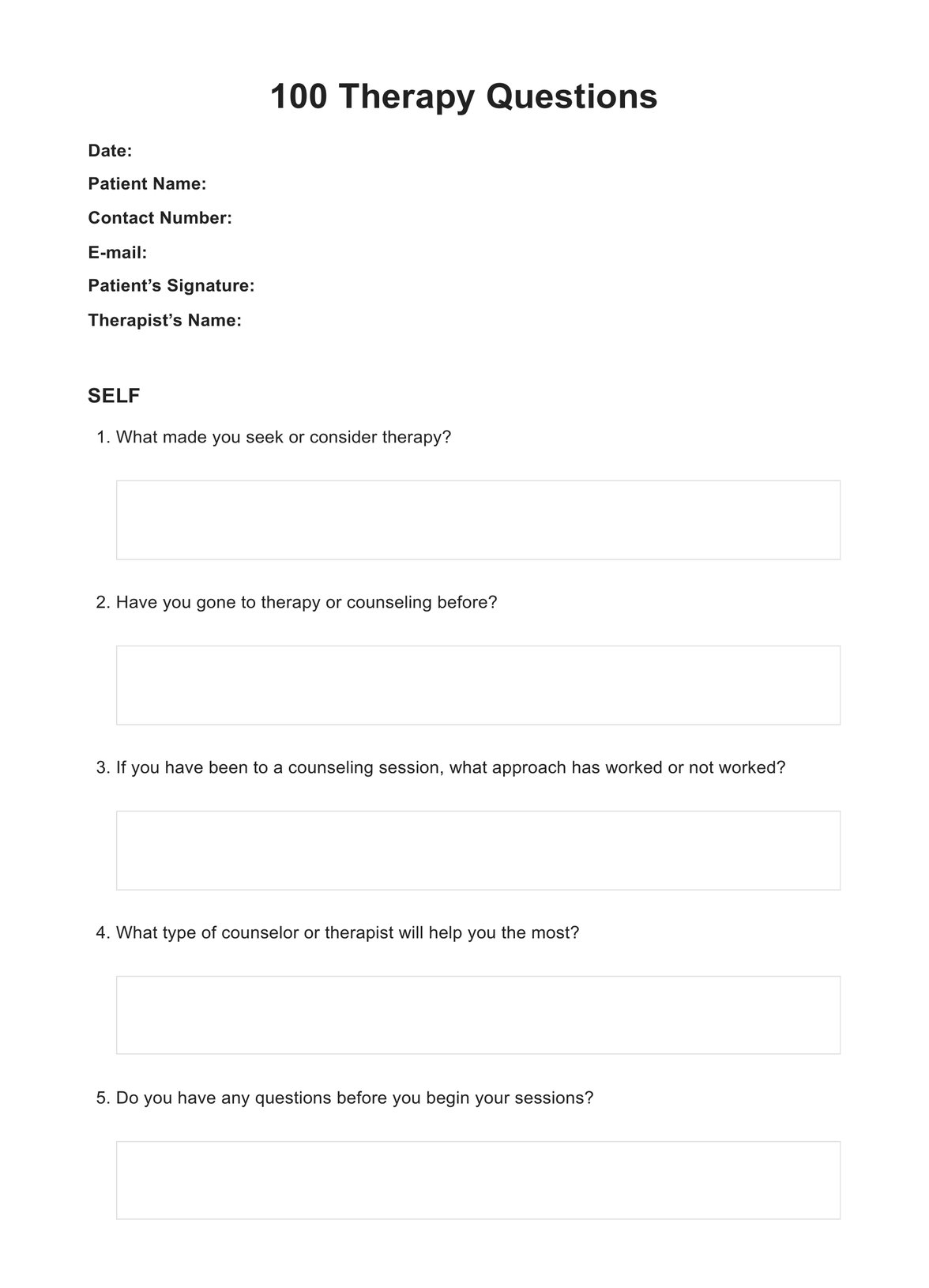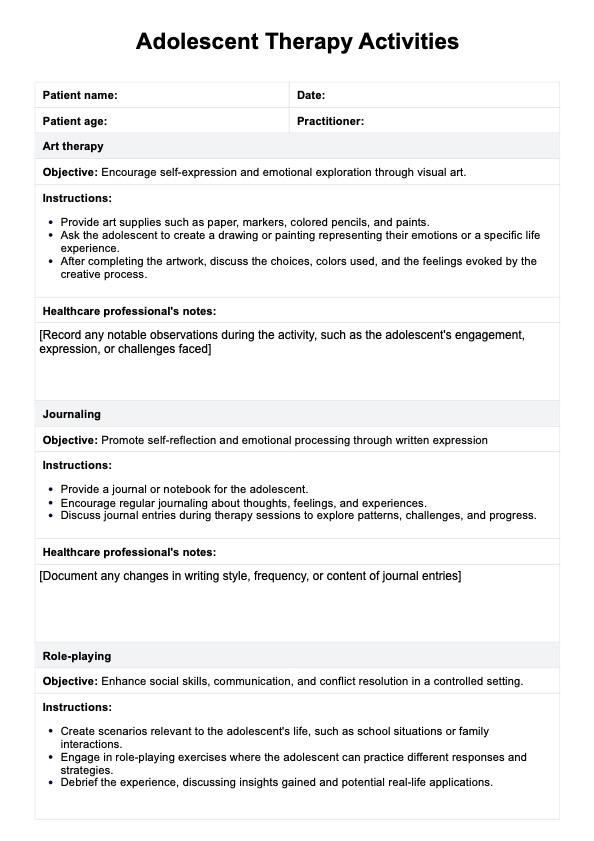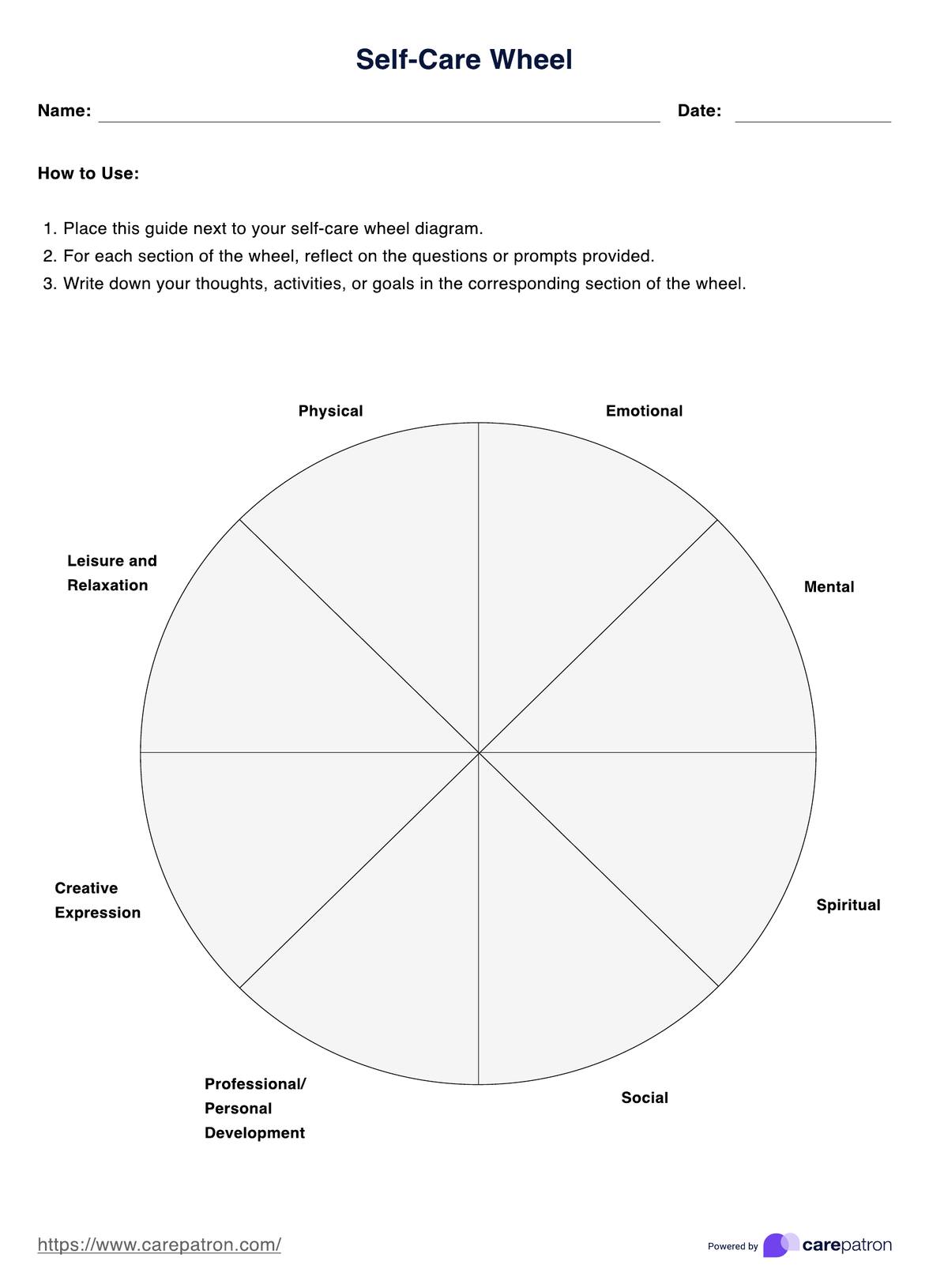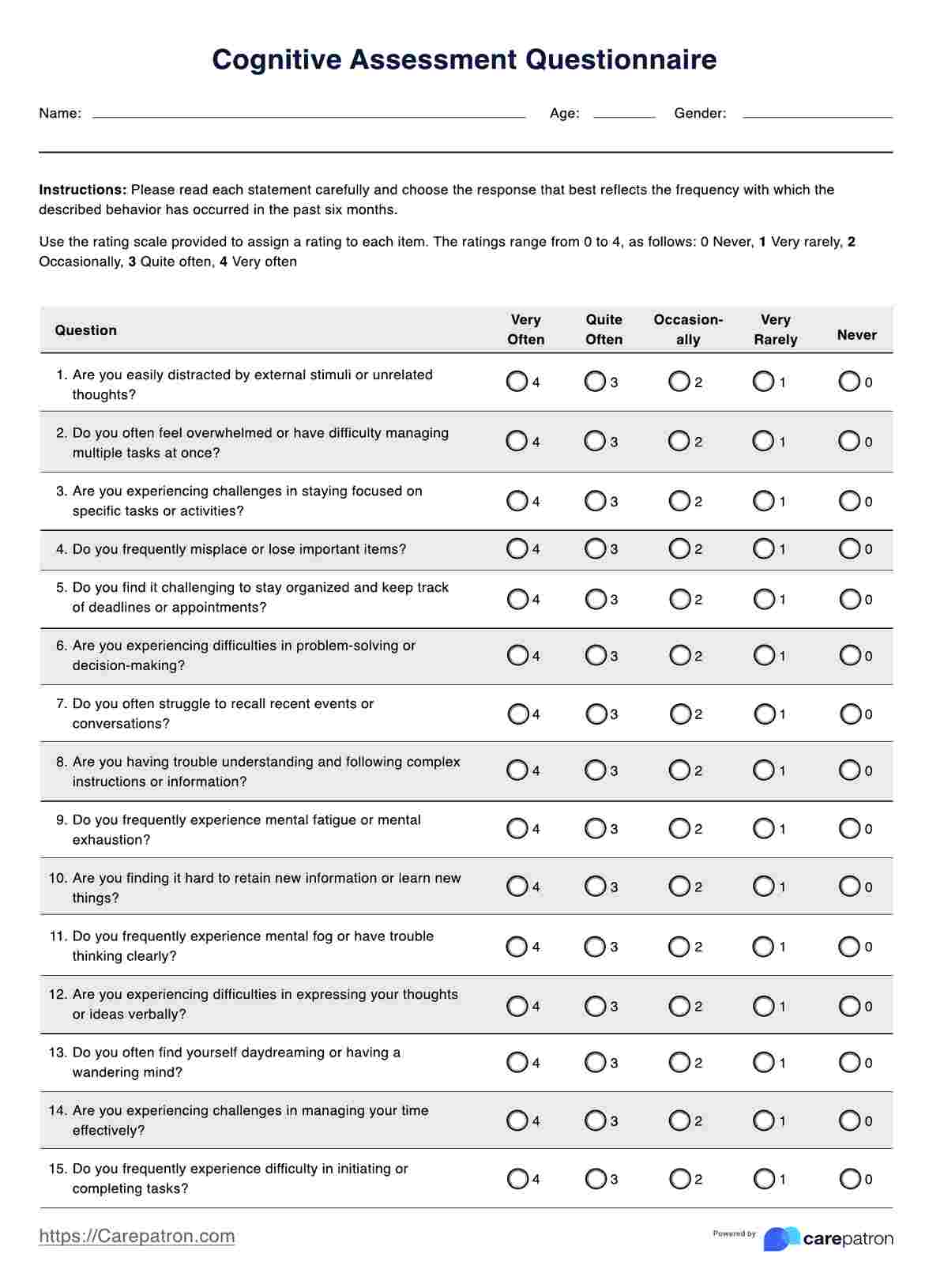Adult Counseling Intake Form
It’s good to have adult counseling intake forms in your counseling center. Issue these to adult clients setting up appointments for the first time! It should give you a general idea of them when they finally meet you. This can be issued online, too, if you have an online registration infrastructure!


What is an Adult Counseling Intake Form?
Before we discuss what an is, let’s talk about what intake forms are, in general. Intake forms are fillable documents that healthcare professionals use in order to collect particular information from their upcoming clients, especially first-timers!
These documents are used to ask upcoming clients about their medical histories, family information, and genetics, what symptoms they have now for whatever potential problem they want to consult about, and if they have had any surgeries or particular treatments worth noting.
That’s what they generally contain, though do note that what they contain exactly will depend on the kind of healthcare services offered.
The Adult Counseling Intake Form does this too, but it focuses on subjects related to mental health. Some of the things you will see in such forms are questions or items revolving around a patient’s history with psychiatric practices, therapy, and/or counseling. Other sections will be about their educational attainment, military experiences (if any), if history of substance abuse, family history, what their family’s concerns are regarding them, what their individual concerns are, what their common interests are, and a whole lot more.
Adult Counseling Intake Form Template
Adult Counseling Intake Form Example
How does one go about filling out an Adult Counseling Intake Form?
It’s not at all difficult. It might just take a while, depending on how long the form is. We’ve created a template for this kind of patient intake form, so we will inform you as to what exactly needs to be filled out!
First and foremost, the clerical stuff! An upcoming patient needs to do the usual things like indicate their name, date of birth, age, marital status, military history, education, etc.
After the basic information has been given, they will have to answer several items. They will be grouped under the following categories:
- Checklist of Traumatic Experiences and Losses - They need to tick whichever applies to them, like bullying, sexual abuse, isolation, war, job loss, etc.
- Family History - The person will answer questions like “How would you describe your family,” “Did they experience any abuse as a child, whether at home or outside,” “Did you get the support that you needed from your family,” and “Do you experience abuse in your adult life” to mention a few.
- Counseling/Therapy History - There will be questions about the person seeing a counselor/therapist before or not, and if they did, what did they like the most about their experience and what they didn’t like the most.
- History of Substance Abuse - If the patient has a history of substance abuse, they will answer questions about alcohol, tobacco, and drugs (legal and illegal). There will also be a part here about other addictions that they may have.
- Legal Issues - If the patient has had any run-ins with the law or has been involved in any legal issues, or is currently going through any legal issues, they will answer a question as to how it has affected them or is affecting them, especially mentally.
- Emotional and Mental Health - This section will be about how the patient is currently feeling. There will be questions about how they would describe themselves when it comes to their emotions, if they have had any thoughts of self-harm or harming others, if they have enacted those thoughts, and if they have a support system.
- Reason for Seeking Counseling - The patient will describe the problem they are dealing with that they want to seek counseling for and what they would like to be the result of their counseling sessions. They will also indicate any concerns that their family has regarding them, and they will also indicate whatever their individual concerns are regarding themself.
The last part is a privacy agreement. For this template, there will be a general privacy agreement section that will be signed by the patient and their witness. It’s recommended that the next pages should have a HIPAA Notice of Privacy Practices as well as whatever local mandates your locality has.
When should one use this Adult Counseling Intake Form?
As we mentioned earlier, we created this template for you to use for free, if you want. If you are having trouble constructing your own template for your counseling center or group, we wouldn’t mind and would love for you to use our template, especially if you think it looks good and believe it will benefit your work. You can use it as is, or if you still want to make your own, you can use it as inspiration as you determine how to create your template.
As for actually using the form for its purpose, the best time to implement its use is all the time. This is meant to be filled out by a potential counseling or therapy patient, so having it readily available at all times is always the best way to go. For physical copies of the Adult Counseling Intake Form, they should be available to grab at the front desk or designated areas for filling up forms. If your counseling center has an online registration infrastructure, then the Adult Counseling Intake Form should be integrated as part of it, and the information should be properly organized and sent to the counselor who will be assigned to handle them.
What are the benefits of using the Adult Counseling Intake Form?
It’s an efficient way to gather preliminary information on a patient.
Intake forms normally ask potential patients for a wide range of information that attending physicians, or in the context of the Adult Counseling Intake Form, counselors and therapists, might and will need in order to streamline the counseling process and focus on what their upcoming client needs the most.
It can help clarify expectations and goals.
Part of the Adult Counseling Intake Form is asking potential patients what they hope to get from counseling. Once a counselor gets assigned to a certain person, they can set their expectations when they finally meet for the first time by talking about what they can aim to do for the person based on what’s written on the form as well as informing them about what they can achieve within the realm of possibility, as well as what is guaranteed and what isn’t.
It can help counselors personalize programs for their patients.
Since the Adult Counseling Intake Form will ask them about numerous things, certain answers will likely stick out. Once a counselor has been assigned to a patient and they go through the patient’s intake form, they will essentially gain a general understanding of the patient and they can structure their initial session based on what’s written. Once they meet and the counselor gains significant information, they can properly personalize subsequent sessions for the patient in order to attempt to address their needs.
The form can establish continuity.
In the event that your counseling patient moves to another counselor or therapist, you can give them their intake form as well as copies of other documents that you may have. That way, the patient can provide their next counselor or therapist with the needed documents to continue the progress that has already been made with you and that your sessions with the patient don’t go to waste.
Commonly asked questions
Nope. Only once is enough. A form needs to be filled out only during the registration of the patient. They don’t need to fill out another unless there are any significant changes in their personal or medical history.
Yes. Counselors are expected to follow HIPAA privacy guidelines and privacy laws mandated by their location, so they are required by law to keep a patient’s information confidential. The only times they can share it is if their patient allows them to share the information with a certain person or party or if they are required by law to disclose the information for any legal cases that may require it.
That depends on the intake form. Some intake forms are longer than others, so it’ll take longer for people to accomplish those, but generally, it takes between ten to thirty minutes to accomplish one.
Yes, it is necessary and important. Intake forms provide counselors and therapists with important information that will help them tailor-fit their approach and counseling program to hopefully address the needs of their patients based on what is written on the forms. This will also help create opportunities to get the ball rolling immediately.


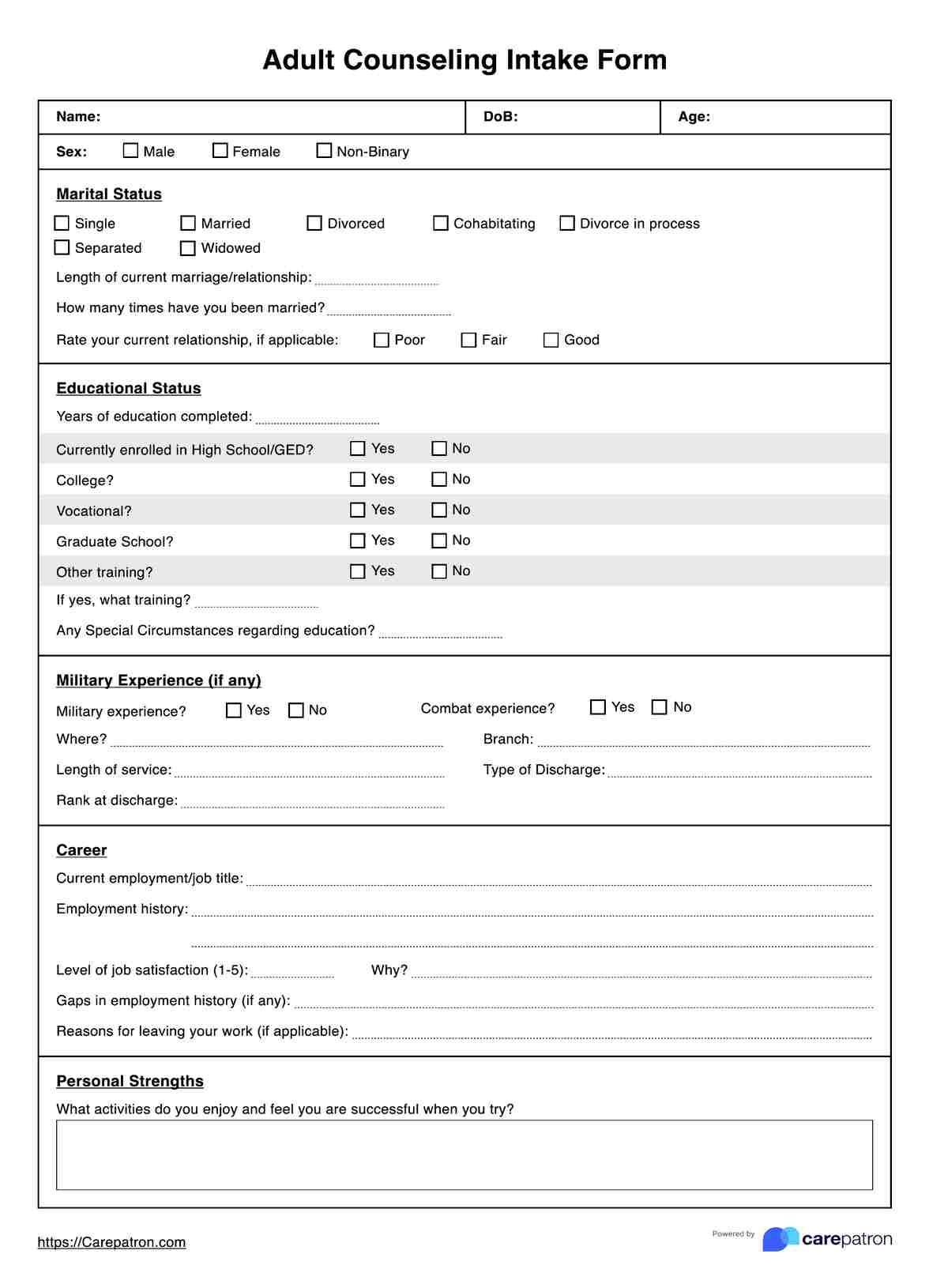
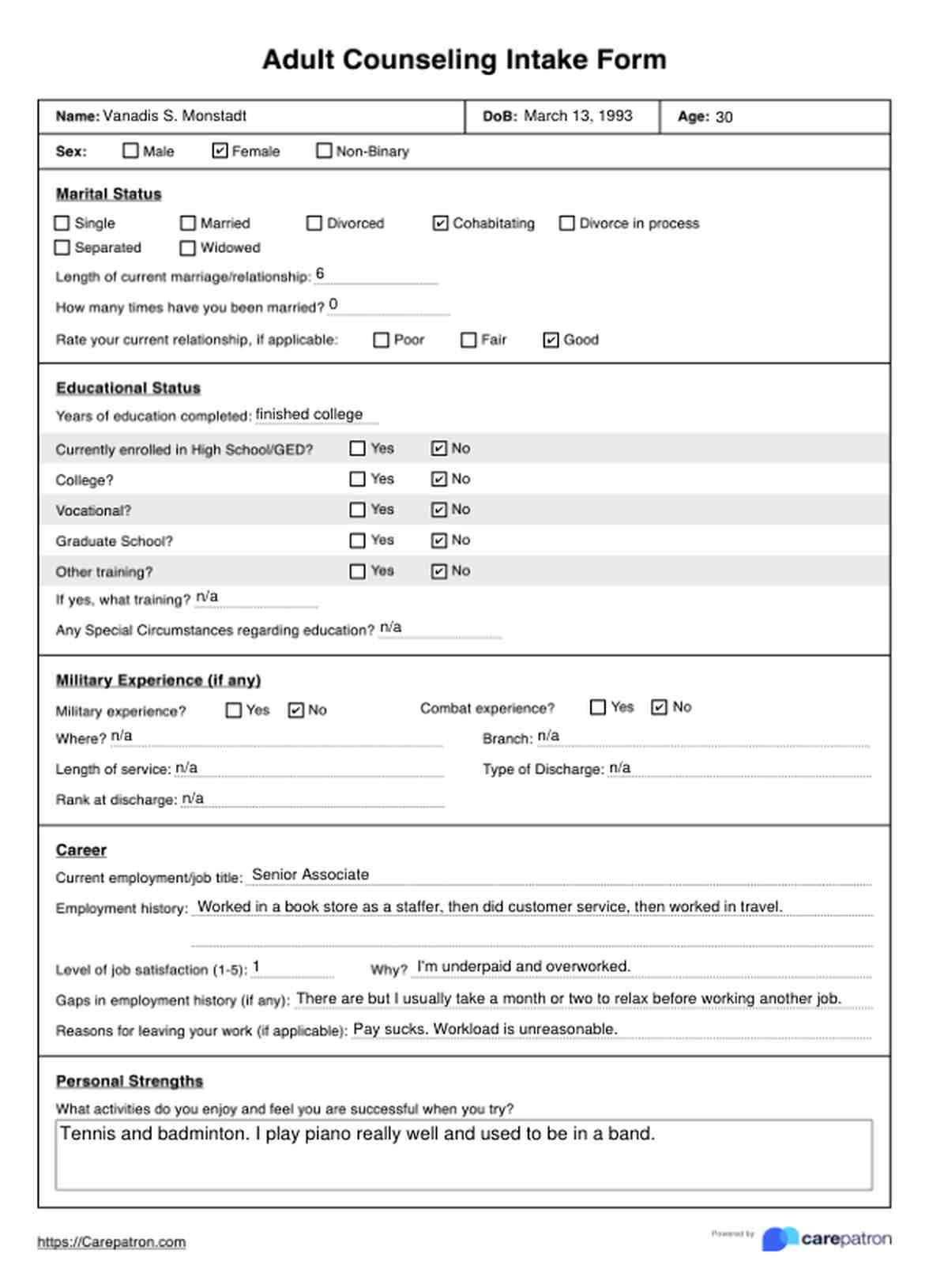

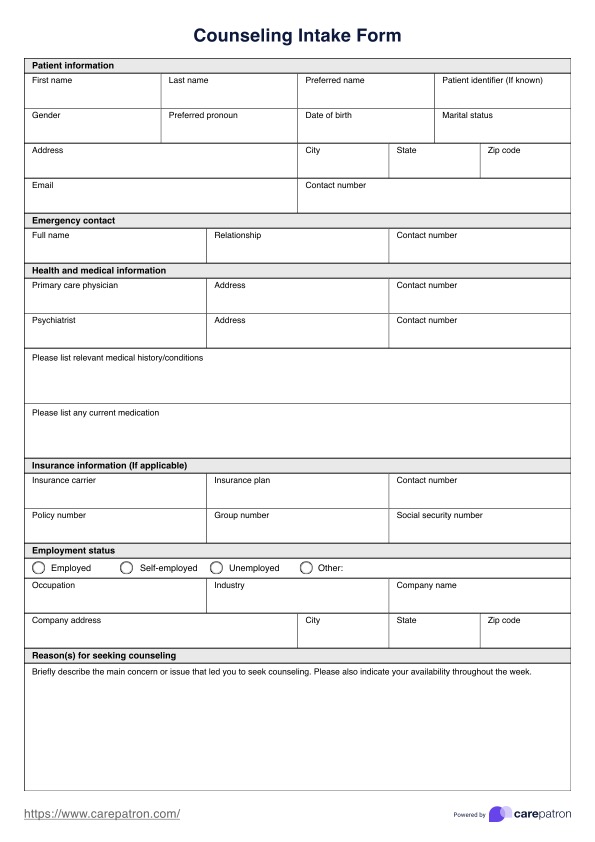













-template.jpg)






















































































